Presidential Notabilities of the Republic of Luger
| № | Portrait | President | Presidency | Previous profession | |
|---|---|---|---|---|---|
| 1 | 
|
George Lee August 28, 1690 – December 31, 1755(Age 65) |
South Carolina | November 10, 1745
- November 10, 1753 |
First Commander-in-Chief (1738-1744) and President of the Republic (1745-1753) Wrote the Records of Confederation (1745) Shaped chief executive's duty; established two terms of four year limit (1745) Created the --th Amendment: "Statehood shall be hereon immune to forceful federal servitude, abolition of any, unjust occupation, or uncourtly repeal of law" (1752) |
| 2 | 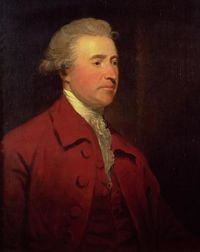
|
Jethro Hall July 21, 1697 – May 4, 1770 (Age 73) |
South Carolina | November 10, 1753
- November 10, 1761 |
Created National Bank (1754) Bought the Northwest Territory (1754) Jethro Document (1755): Luger to remain completely neutral in European affairs Changed capitol from Éireston to Columbia; sponsored the building of the first Capitol House (1755-1760) Passed Native Citizenship Act (1759): gave Native Americans citizenship in the Republic in applause to their effort in the Revolutionary War |
| 3 | 
|
Francis P. McClay April 23, 1701 – August 29, 1782 (Age 81) |
South Carolina | November 10, 1761
- November 10, 1769 |
Statehood to Northwest Territory as Tennessee (1762) Bought Alabama Territory (1765) Passed Alien and Sedition Acts (1766): Made it more restrictive for British and Spanish immigrants McClay's Bill Draft 2: Bill passed that officially declared Lugerian prompts for British and Spanish interruptions in Lugerian trade to cease |
| 4 | 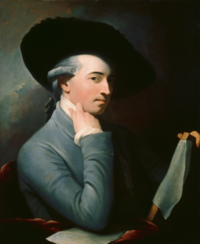
|
Owen S. Key December 25, 1702 – September 8, 1779 (Age 77) |
Georgia | November 10, 1769
- November 10, 1777 |
Passed the Military Opportunity Act (1770): Gave blacks the freedom to become officers in the military Passed the God's Wing of Refuge Act: Allowed slaves from the British colonies to the North to find refuge in Luger Created the Key Roads: large road network between Virginia and North Carolina; regarded as the first "highway" ambitions (1769-1776) Statehood to Alabama (1777) Revised the Alien and Sedition Acts to be less restrictive for the British |
| 5 | 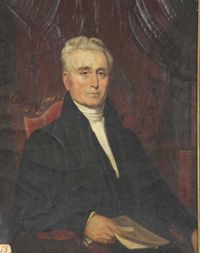
|
Matthew McGrath July 8, 1697 – February 25, 1783 (Age 83) |
Georgia | November 10, 1777
- November 10, 1783 |
First president to have had a religious career background before presidency Passed the Spillover Prevention Act (1777): temporarily suspended state militias under federal overseeing as the Revolutionary War in the United States was going on Passed the Packston Civil Service Reform Act (1780): Provided selection of government employees by competitive exams,[1] rather than ties to politicians or political affiliation Passed the Archdiocesan Integration Act (1782): Prompted the Roman Catholic Church to create Archdiocese's in the Republic of Luger First President to die in office (February 25, 1783) |
| 6 | 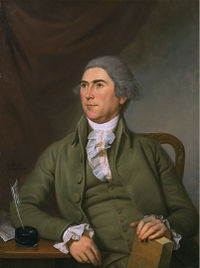
|
Emory C. Beckett November 24, 1736 – May 16, 1797 (Age 61) |
North Carolina | November 10, 1783
- November 10, 1787 |
Born in British Virginia; first English Protestant president Suspected to have won presidency with British interference and corruption in the Congress Presidency was the brief period in which the Congress was split into two parties: the Republicans and the Becketts; ideological difference was democracy and "Beckett democracy," which followed the British ways of democracy Passed the British Nobility Act (1784): Recognizes British noble titles in the Republic of Luger Prompted the State Crisis: South Carolina and Georgia militiamen occupied major cities and peacefully protested, Catholic Churches closed its doors to all British-born, Beckett was publicly shunned and shamed by media, "Beckett Burns" burned scarecrows made to be like Beckett accompanied by groups of hundreds of people |
| 7 | 
|
Chauncey P. McCord August 15, 1744 – October 12, 1830 (Age 86) |
South Carolina | November 10, 1787
- November 10, 1792 |
Succeeded Beckett by popular vote in extreme measures (Beckett gaining only a surprising 19,000 out of 12 million) Passed the Congressional Emergency Act (1787): Allowed the president to dissolve the Congress in times of national crisis with Supreme Court permission Dissolved the Congress in 1788 Passed the Congressional Neutrality Act (1788): the Congress will remain non-partisan Congressional elections of 1788 brought Congress back to normal During presidency, North Carolinians discriminated against for being "British puppets." North Carolinian Congressmen taunted and teased in Congress daily Resigned in 1792 |
| 8 | 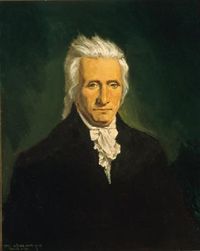
|
Elroy E. Kane March 28, 1730 – October 21, 1812 (Age 82) |
Georgia | November 10, 1792
- November 10, 1800 |
During his Presidency, Beckett was sentenced to death by the Supreme Court for extreme anti-patriotic anti-constitutional measures in his Presidency; Beckett fled for England before his execution Beckett killed by American assassin in England in Newark-on-Trent (May 16, 1797); speculation is Elroy Kane knew the assassin and allowed it to happen - assassin still not known today but is a wildly popular figure known as the "Beater of Beckett," and "Luger's Liberator" Passed the Helping Hand Act (1793): Began a social program named the Helping Hand Foundation (HHF) that is the oldest social program in the world; gives help to the poor and the homeless by giving them an acre or two of federal land for farming to begin making a living Created the State of Appalachia due to popular demand by the people there sparked by cultural differences between them and the North Carolinians Federal grants to science Presidency led to the Era of Kane (1792-1808), where Kane democracy was introduced into the government and still is a well-known part of Lugerian politics today (Kane democracy: a religious devotion to the protection and preservation of the democratic process and the guarantee of civil liberties to whites, those of colors, and those who do not follow the word of the Lord with minimal federal intervention Created the Garden Talks; citizens were able to come to the Capitol House Gardens to voice their displeasures, ideas, and generals to the President |
| 9 | 
|
Dean Kane December 25, 1766 – March 29, 1835 (Age 69) |
Georgia | November 10, 1800
- November 10, 1808 |
Youngest president to date First president to have a parent who was also president President who had retained the lowest rank in the armed forces prior to their presidency Said to have won presidency with "dashing good looks" and "silk tongue" Expanded Helping Hand Act to include women, natives, and blacks (1800-1801) Repealed the Alien and Sedition Acts (1801) Established the Cayman and Bermuda Overseas Territories (1803-1806) Famously known to be "one of the common": took strolls around Columbia, visited homeless shelters created by his expansion of the Helping Hand Acts, visited orphanages, and went to churches in other cities and towns to worship among the people |
| 10 | 
|
Comán O'Rourke March 23, 1755 – March 21, 1834 (Age 79) |
Alabama | November 10, 1808
- November 10, 1816 |
|
| 11 | 
|
Daniel Sweeney July 17, 1771 – November 2, 1858 (Age 87) |
South Carolina | November 10, 1816
- November 10, 1820 |
|
| 12 | 
|
Ezra Calhoun October 31, 1765 – October 31, 1850 (Age 85) |
Georgia | November 10, 1820
- November 10, 1828 |
Known as "Crazy Calhoun" (him and VP Laban Wheaton are known as the "Crazy Old Men of Columbia Hill" Invaded land of the states of Arkansas*, Mississippi, and Louisiana, created Arkansas Terr., Mississippi Terr., and Louisiana Terr. Arkansas Wars: invaded native lands in Arkansas; slaughtered over 12,000 Native Americans Signed the Indian Removal Act, which removed all Native Americans from their federally-protected lands in the East and they were moved west to Oklahoma, which wasn't under Lugerian control at the time State Federalization Act: Banned any state laws that were "conflicts of interest" to the federal government Federalized Militia Act: Banned state militias Courted for impeachment twice but both failed |
| 13 | 
|
Tristam McDermott September 2, 1777 – December 6, 1851 (Age 71) |
South Carolina | November 10, 1828
- November 10, 1836 |
Known as the "Fixer-Upper" of Crazy Calhoun's notabilities Led the Anti-Calhoun Committee in the Senate Occupied Oklahoma and created the Indian Confederacies, an autonomous confederation of Native American tribes; gave compensation to the Native Americans Statehood to Mississippi as Lee (1828), Louisiana (1830), and Arkansas (1832) Repealed State Federalization Act and Federalized Militia Act |
| 14 | 
|
Cormac Dinwiddie August 10, 1802 – February 3, 1836 (Age 36) |
Mississippi | November 10, 1836
- February 3, 1836 |
Created the Department of Agriculture to protect the interests of local farmers Shortest presidency - Died of a stroke because of extreme weight |
